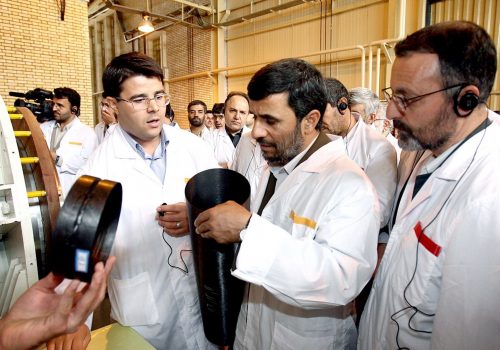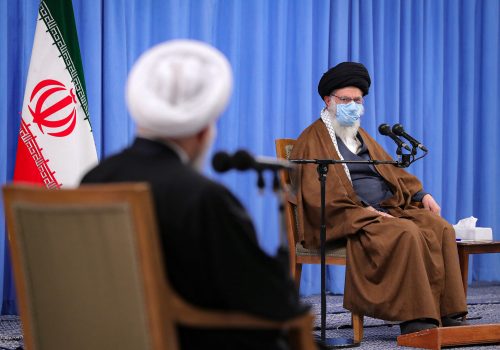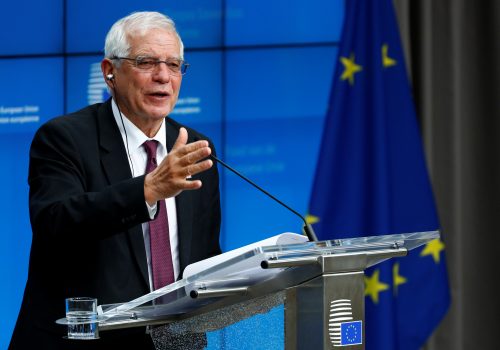‘Here’s the (Iran) deal, folks’: Americans are fine with a return to the JCPOA
Supporters of the Iran nuclear deal got a bit antsy as the weeks rolled by after Joe Biden’s inauguration without apparent progress toward restoring the landmark 2015 agreement.
Members of the US Congress and assorted lobbyists who had opposed the Joint Comprehensive Plan of Action (JCPOA) from its inception took advantage of the time to argue against the Biden administration lifting punitive sanctions and returning to compliance with the JCPOA even if Iran would do so as well.
However, Congress’s views—especially those of Republican hawks such as the four who on April 6 sent a letter to the president urging him not to give up the purported “leverage” sanctions provide—are not particularly relevant to the ongoing diplomacy, which made important progress in Vienna on April 6.
Under the Iran Nuclear Agreement Act of 2015 (INARA), it would have taken a two-thirds majority of both houses of Congress to block the JCPOA, which was an executive agreement by the Barack Obama administration and Iran. Congress failed to come up with anything close to that veto-proof majority even when Republicans oversaw both the House and Senate. To do so now, when the chambers are in the Democrats’ hands, is a mathematical and political impossibility.
Congress only comes into play if a new deal is negotiated or if substantive changes are made to the current agreement. Neither, however, can occur until the original pact is restored.
Biden did have to be a bit circumspect at first to make sure his key nominees got through the Senate Foreign Relations Committee, led by JCPOA skeptic Bob Menendez (D-NJ). The president also needs Menendez’s vote to pass domestic legislation in a 50-50 Senate but having made his hawkish points in confirmation hearings, the senator is unlikely to let his views on Iran trump his desire for millions of dollars in infrastructure spending in New Jersey.
Biden also had to give his quickly appointed Special Envoy for Iran Rob Malley time to build a team to prepare the steps necessary for a return to compliance and consult with US partners in Europe and the Middle East. Iran, meanwhile, had to agree to the European Union’s offer of mediation and drop its maximalist demands for the US to lift sanctions as a precondition for talks.
This time of shadow boxing and consultation is now over. In Vienna, the remaining parties to the JCPOA—Iran, China, Russia, France, Britain, and Germany—met in plenary session and then began technical talks on sanctions and Iran’s nuclear advances. Both Iran and the US—despite communicating only via the Europeans—said the discussions had been “constructive.”
Iran can reverse the steps it has taken to advance its nuclear program in a matter of weeks, according to the head of its Atomic Energy Organization, Ali Salehi, who explained on the audio-only app Clubhouse that the deadlock over who goes first had been broken.
Biden, meanwhile, can lift the sanctions imposed by Donald Trump through executive orders without facing much of a domestic backlash. Those who claim there is some groundswell of opinion in the United States against a swift and unconditional return to the JCPOA are either insincere or don’t understand American public opinion (six in ten Americans approve of a nuclear deal with Iran).
“Here’s the deal, folks,” as Biden would say: Americans, like most people around the world, are thoroughly absorbed with getting past the coronavirus pandemic and returning to a semblance of normal life.
Almost no foreign policy issues are breaking through the US news cycle these days except for China, which has become the new bogeyman because of its rapidly growing economy and repression of human rights. Indeed, the latest Gallup poll shows that while an overwhelming majority of Americans share a negative view of the Iranian government, only 4 percent consider it the biggest foreign threat to the US. China tops the list at 45 percent, followed by Russia (26 percent), and North Korea (9 percent).
Thanks to the fact that the Donald Trump administration’s unilateral withdrawal from the JCPOA has been such an obvious and abysmal failure, a majority of Americans—and two-thirds of US-based Middle East experts—now support the original deal. They also understand that there can be no “better deal” without reviving the JCPOA first.
Trump’s vaunted “maximum pressure” produced maximum failure as Iran became more aggressive regionally and more repressive at home. Sanctions, like overused antibiotics, became less effective over time as Iran continued to sell oil to China via cutouts in Malaysia and elsewhere. Iran built up its leverage, enriching uranium to 20 percent purity and resuming enrichment at Fordow, a deep underground facility. It also threatened to cut back on monitoring by the International Atomic Energy Agency (IAEA), agreeing at the last minute to extend assess through late May.
US European allies, while failing to compensate Iran for the economic losses caused by their companies fleeing the Iranian market after Trump’s election, nevertheless kept the skeleton of the JCPOA intact. They stood up to Trump and his Secretary of State, Mike Pompeo, when he tried to extend a United Nations embargo on conventional arms trade with Iran beyond the October 2020 deadline specified in the accord and the UN Security Council Resolution 2231 that codified the deal.
The European Union’s high representative for foreign and security policy, Josip Borrell, told the Atlantic Council in February that restoring the nuclear accord was his top priority. Borrell and his team, including deputy Enrique Mora, who chaired April 6 meetings of the Joint Commission that oversees the JCPOA, deserve credit for keeping the diplomatic ship afloat.
Meanwhile, Republican hawks and former spokespeople for the Trump administration will continue to call the progress “appeasement.” The Biden administration will ignore them and do what needs to be done to salvage a key achievement for multilateral diplomacy and non-proliferation.
Barbara Slavin is director of the Future of Iran Initiative at the Atlantic Council. Follow her on Twitter: @BarbaraSlavin1.
Image: European External Action Service (EEAS) Deputy Secretary General Enrique Mora and Iranian Deputy at Ministry of Foreign Affairs Abbas Araghchi wait for the start of a meeting of the JCPOA Joint Commission in Vienna, Austria April 6, 2021. EU Delegation in Vienna/Handout via REUTERS


